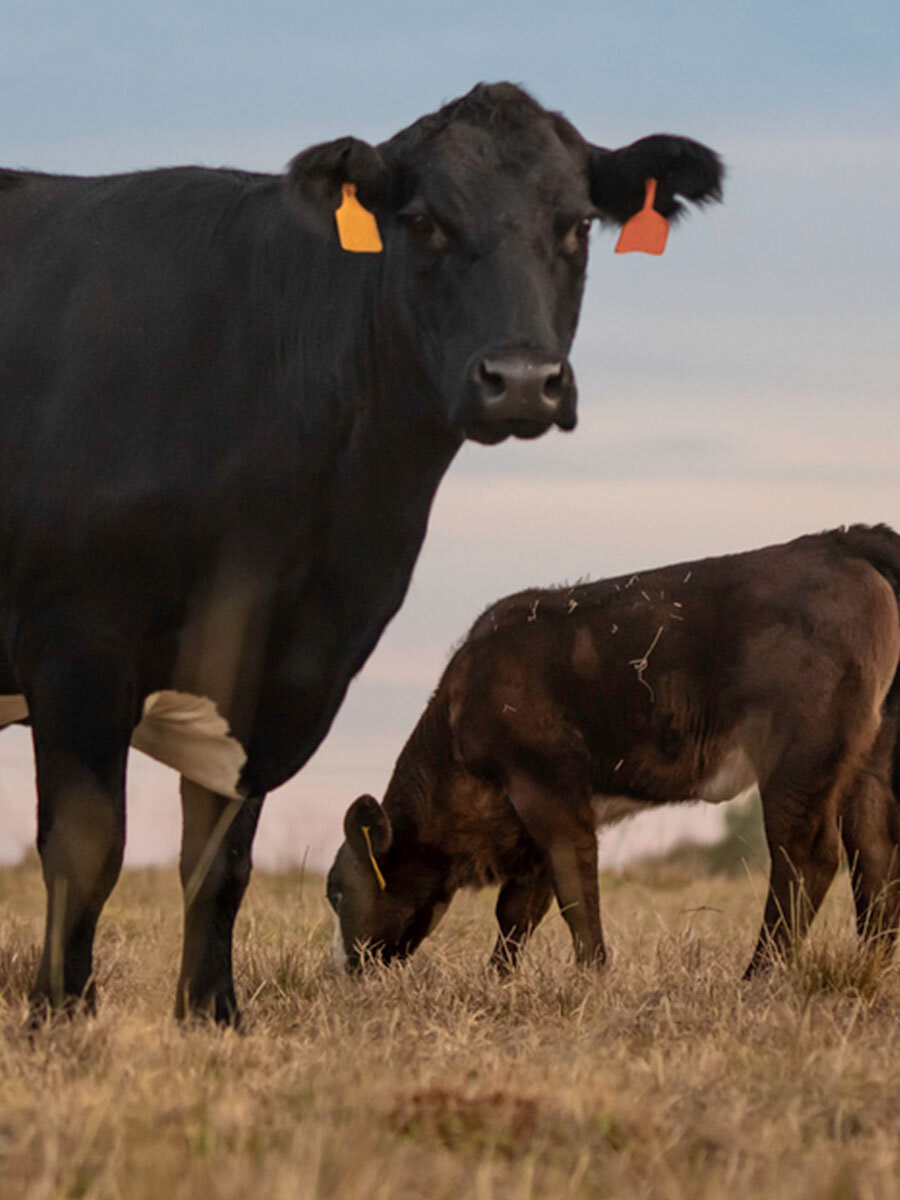Beef
Some 74% of beef slaughter is controlled by four companies: Tyson, JBS, Cargill, and National Beef (majority owned by Marfrig). But concentration in the beef industry looks different than in other forms of animal agriculture. Cows have only one calf each year, rather than the many chicks or piglets born by hens and sows. And it often takes more than a year before this calf grows big enough for slaughter. These characteristics mean that cattle farming is still largely unsuited for the many of the forms of vertical integration that now define chicken and hog farming.
Read More
Until recently, the beef market was a model of open, competitive markets. Independent “cow-calf” ranchers bred and raised their own cattle, then sold them to independent feedlots, which fattened the cows and sold them to independent slaughterhouses. At each stage of the process, stakeholders were paid a fair price, based on the sale of cattle in competitive auctions. But beginning in the 1980s, a few large slaughterhouse corporations began to consolidate their hold on various stages of the business, especially feedlots. Just in that decade, the number of cattle-feeding operations in the largest cattle states dropped by 40% as large packers drove smaller feedlots out of business. Between 1981 and 1994 net profits for cattle feeders averaged $36 per head, but that amount dropped to $14 between 1995 and 2008.
Such consolidation means today there are fewer buyers bidding for cattle. In many regions of the country, ranchers report finding as few as two buyers in a market, and increasingly these buyers do not compete against one another. As a result, most cattle are no longer sold in open auctions. Today packers secure 75% of cattle through forward contracts or “formula pricing,” in which they determine the value of cattle based on a non-negotiated pricing formula (not unlike the take-it-or-leave-it contracts now common in pork and poultry).
The only semblance of competitive pricing comes from the fact that packers base these pricing formulas off of the going price for cattle in open auctions. However, with fewer cattle sold in these auctions to fewer bidders, ranchers have accused packers of manipulating cash auctions to suppress the price of cattle across the entire industry.
Increasingly, the most powerful beef packers are foreign-owned. The biggest player in the American beef industry is the Brazilian-owned company JBS, which is also the largest beef company in the world and one of the world’s largest producers of poultry and pork. Marfrig Global Foods is another key Brazilian player in the beef industry. Marfrig is the third-largest food processor in Brazil, and the fourth-largest beef producer in the world.
JBS has been embroiled in corruption charges for giving roughly $150 million in bribes to more than 1,800 government officials over several years to receive favorable financing from Brazil’s state-owned bank. JBS used these funds to finance major acquisitions across the globe, including the takeover of Swift & Co., then the third-largest U.S. beef and pork packer, as well as Pilgrim’s Pride, then the world’s second-largest poultry processor. JBS has already agreed to pay $3.2 billion to settle a Brazilian corruption case for these charges.
In 2017 Brazilian investigators discovered that JBS and other meatpackers also bribed health inspectors in order to ship rotten and tainted meat around the world. The U.S. temporarily banned Brazilian beef imports, but lifted this ban in early 2020.
American ranchers faced increase pressure from beef imports, but it is nearly impossible for consumers to identify true domestic product. In 2015, Congress repealed mandatory country of origin labeling on beef and pork and to make matters worse, a USDA rule allows foreign-grown meat repackaged in the United States to be labeled a product of the USA.
The highly consolidated nature of the beef industry in the U.S. also harms the welfare of workers, animals, and the environment. The enormous amount of manure produced by industrial feedlots can spill into rivers and lakes, leach into groundwater, and thereby enter municipal water systems. The close quarters in which animals are kept in contained animal feeding operations (or CAFOs) leads to air pollution for nearby residents, often resulting in asthma or other health conditions. Cattle kept in confinement are more likely to be exposed to diseases, requiring more antibiotic treatment and contributing to human over-consumption of antibiotics and the decrease in antibiotic efficacy. Slaughterhouse workers are also endangered by the industrial beef industry, as described in more detail on our Slaughterhouse Workers page.
Abroad, Brazilian meatpackers have been found to illegally source cattle from farms contributing to Amazonian deforestation. An Australian beef wholesaler that supplies Walmart and Safeway, Thomas Foods, was also found to import beef raised by Nicaraguan ranchers who violently seized land from Indigenous people for cattle production.






